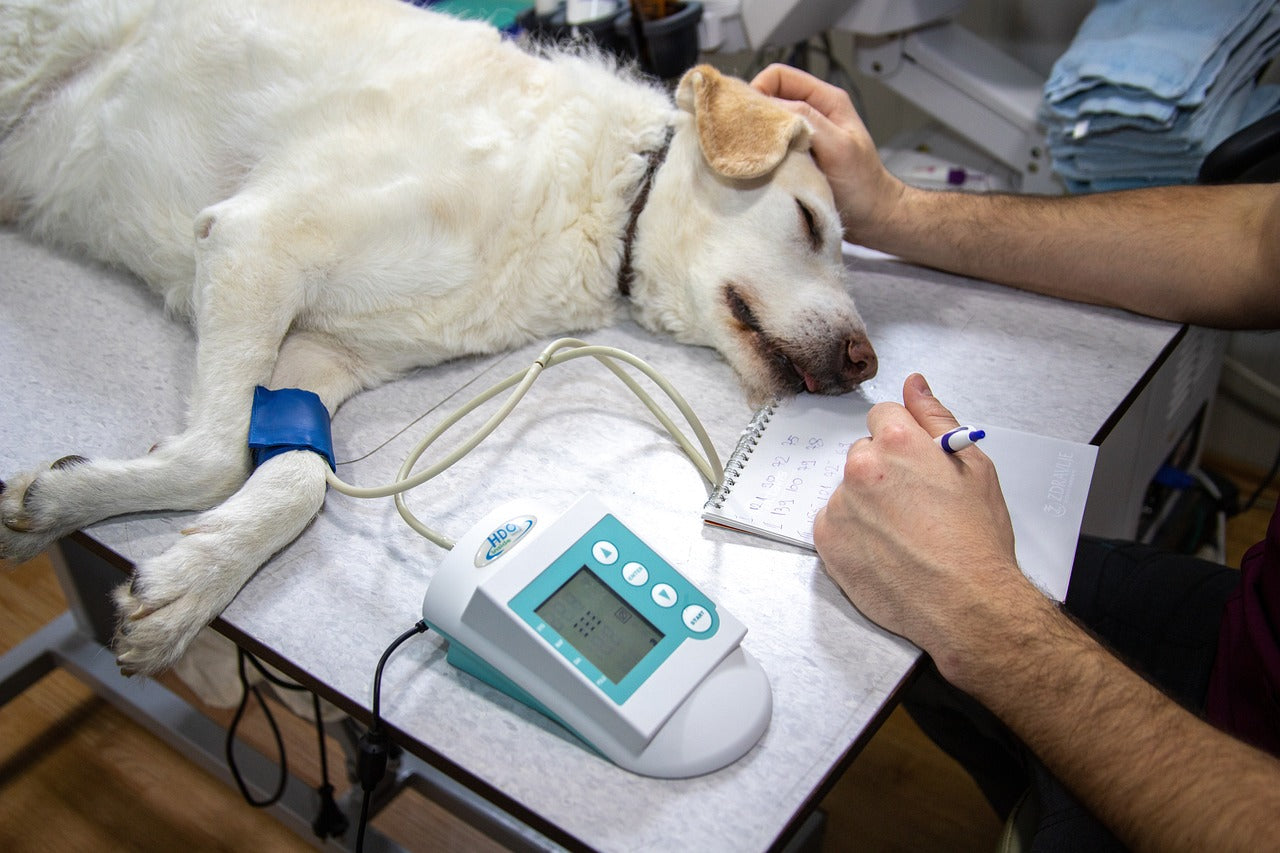Latte is turning nine in October. There are many things we have learned since we welcomed her home eight years ago. Many of which, we wished we knew earlier and some of which, we would undo if we could turn back time.
I first started toying with the idea of writing this post 2 years ago but it ended up collecting virtual dust as I got distracted with work. It’s not a bad thing though, as I have more learnings to share now than ever.
I believe this list would be especially helpful to new dog parents. But whether you have a puppy, an adult, or a senior dog, there may be a thing or two that’s new to you and it’s never too late to make necessary changes.
1. Kibble isn't the only option
When we decided to take Latte home, the pet shop boss told us that she was on two brands of food - Purina and K9 Natural. He didn't explain to us the difference between them and I assumed that a dog's diet consisted of kibbles. It was only much later that I realised that K9 Natural was freeze-dried raw food and that it's not kibble.
One thing I knew was that diet is important and I wanted the best for my new pup. I researched the best dry food and brands like "Acana" and "Solid Gold" came up. Unlike recent years, there was not much information on home-cooked or raw diets.
It was only after Latte started suffering from skin issues that a vet suggested changing her diet to home-cooked. Oh, what a difference that made to her coat and digestion! She stopped regurgitating her food and her coat was shinier. It was a light bulb moment for me.
Latte's persistent skin issues led me to discover what's not good about kibbles and what is great about fresh, minimally processed food.
What we feed our bodies affects our health. As a pet parent, it's absolutely crucial to know the various food options out there for your dog and make decisions that you think are best for them. Read our Vanillapup dog food guide to find out more.
2. Researching the breed well can prevent problems early
I must admit I was far from a role model pet parent. The only thing I knew about Westies was that they were known to be stubborn.
I was not prepared for the unmanageable skin issues that confronted me shortly after Latte turned one. I am sure I could have done a lot more to prevent or reduce the severity of her skin issues if I knew how common it is for local Westies to face them.
Every dog breed has its own list of common health problems and the likelihood of your dog getting them depends on factors like genetics, lifestyle, and diet. Poor breeding puts dogs at a great disadvantage. Do not support puppy mill breeding.
3. Dogs have at least these 6 core needs
Besides basic needs like food, water, and shelter, Noble Woof Dog Training says that dogs have six core emotional needs, which really resonate with me. They are:
-
Sniffing: Sniffing is our dog’s way of getting information and understanding their environment. It also helps them relieve stress. Allow opportunities for your dog to sniff on walks and you can also provide them with nose work activities
-
Dissecting: Dissecting toys fulfil your dog’s ancestral instinct to hunt and kill prey. Always provide dog safe toys and monitor play
-
Digging: Create opportunities for your dog to dig at places where digging is okay, such as the beach
-
Chewing: Chewing helps your dog relieve boredom and stress/anxiety. It is also a great way to keep their jaws strong and teeth clean
-
Chasing: Chasing is a rewarding natural instinct. Teach your dog the appropriate times to chase, such as during games like fetch!
-
Social contact: Your dog needs socialisation with both humans and dogs but remember, there’s no need to force your dog to make friends with everybody
If our dogs’ emotional needs are not met, we will likely see behavioural issues as they try to fulfil those needs in ways we don’t agree with (e.g. destroying your things).
Latte gets to do most of those activities almost daily except chewing so we are working on providing more opportunities for her to do so with appropriate raw meaty bones.
4. Choose treats wisely and feed in moderation
One big way we show our love for our dogs is through food. Seeing their wagging tails and eager looks, in turn, makes our hearts full.
It does take a lot of willpower not to succumb to slipping your pup a little something from the dining table or showering them with treats. But what we have learned from raising a pup with food allergies and a history of yeast overgrowth is that loving our dogs sometimes means not giving them what they want.
Unhealthy table scraps and dietary indiscretion can cause health conditions like pancreatitis and Irritable Bowel Disease (IBD). Starchy foods and high-sugar fruits can worsen yeast infections.
There are also many unhealthy dog treats in the market that are laden with low-quality ingredients, carbs, salt, flavouring, colouring, and preservatives.
Choose high-quality treats with single or few whole food ingredients that are made in credible facilities. Look beyond attractive packaging and read the ingredients lists.
Lastly, overfeeding your dog may lead to obesity, which would attract more health problems down the road. Always feed in moderation. Latte only gets up to 2-3 pieces of treats on a regular day; most days none at all.
5. Sterilising dogs too early has its drawbacks
If I could turn back time, I would never have sterilised Latte when she was just 7 months old. Her body did not get a chance to develop fully. Here’s our post on whether you should or should not sterilise your dog.
6. Yearly vaccinations may not be necessary
Over-vaccination can do damage to your dog’s immunity and overall health. Opt for a titer test to check for antibody levels against core diseases in your dog. With the result, your trusted vet and you can then decide whether a booster is necessary.
Latte had all her puppy shots and one booster the following year before we stopped giving her annual boosters by default. She’s turning nine and her latest titer test shows that she still has antibodies against parvovirus, distemper, and adenovirus.
If we didn’t do titer testing and went ahead with the boosters, we would have put her at risk of over-immunisation for the past eight years.
7. Heartworm and flea & tick chemical treatments are insecticides
This is a controversial topic. Diseases like heartworm and tick fever caused by mosquitoes and tick bites are potentially fatal. So, it’s important to balance the risks of your dog getting infected and the risks of adverse reactions from chemical treatments.
One of the considerations is your dog’s lifestyle. Are they often interacting with strays or other dogs and animals you don’t know? Are they living or walking in areas with high exposure to ticks and mosquitoes?
If the answers are no, natural repellents may work in place of chemical treatments. A good, balanced diet also plays an important role in prevention.
If chemical treatments are necessary, discuss with your trusted vet for the appropriate product, be very careful with the dosing amount and frequency, and keep multiple pets apart if you are using a topical product until it dries up.
You can find out more from the U.S. Food & Drug Administration (FDA)’s article on the safe use of flea and tick products in pets.
8. Basic training commands should go beyond sit, down, and stay
Training basic commands can help your pup understand you and also keep them safe outdoors. It tends to be easier when you start early. Here’s our post on “7 commands to teach your dog that’s not sit, down, and stay”.
9. Schedule regular health checks
Annual health check with bloodwork helps to spot problems early. You can also request to test for heartworm and tick fever.
Young dogs can go for it every two years while older dogs are advised to get checked annually. Those with abnormal readings would usually be asked to get another test in 6 months.
10. Dental health should not be overlooked
Most pet parents aren’t motivated to brush their dog’s teeth. That is especially so if they have a dog that dislikes it too.
Unfortunately, poor dental health has many consequences like bad breath, tooth decay, and gum disease. Tartar is also quick to form and once you get a hard layer of yellow, it starts pushing up the gum line, which can lead to irritation and inflammation (bleeding, swelling, etc.). Dental scaling under anaesthesia by a vet may be the only way to get rid of it.
I confess that I only started brushing Latte’s teeth regularly recently. But the good news is, once you start a habit, it gets easier! Latte also started to tolerate the process more when I am more patient. The most important part is to get started!
We recommend this Mind Up toothbrush and RADIUS toothpaste bundle.
Featured photo by Samson Katt



